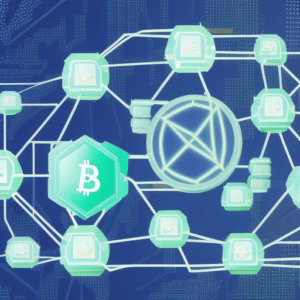As Web3 continues to evolve, people are starting to think about potential use cases. How can Web3 make the Internet more democratic, secure, private, and transparent?
In this article, we will discuss the six most popular Web3 use cases today. They are blockchain technology, cryptocurrencies, decentralized applications (dApps), decentralized autonomous organizations (DAOs), decentralized finance (DeFi), and non-fungible tokens (NFTs).
The Web3 Research Institute is reader-supported. When you buy through links on this site, we may earn a commission at no cost to you.
1. Blockchain Technology
Blockchain technology is what makes cryptocurrencies and other Web3 technologies work. This technology uses a decentralized network of computers to verify and keep track of transactions. This process makes blockchain transactions very secure and transparent. It also means that hackers cannot easily steal data and no central authority is needed to oversee transactions between people.
2. Cryptocurrencies
Cryptocurrencies are a type of money that governments and financial institutions do not control. The most popular cryptocurrencies are Bitcoin and Ethereum, but there are many others. You can buy cryptocurrencies on online exchanges and then store them in a digital wallet.
Some people use cryptocurrencies to purchase goods or services. Others hold onto them as a store of value. Cryptocurrencies are very volatile, so their value could go up or down a lot in a short period.
3. Decentralized Applications (dApps)
Decentralized applications, or dApps, are programs that run on a distributed network of computers instead of a single server. This makes them more resistant to censorship and shutdowns than centralized applications like Facebook and Twitter. They are also open source, which means their code is available for everyone to see and audit.
dApps have been gaining in popularity in recent years. This is because they offer several advantages over centralized applications. However, dApps are still in their early stages of development, and it is unclear whether they will succeed in the long run.
4. Decentralized Autonomous Organizations (DAOs)
Decentralized autonomous organizations, or DAOs, are a new form of governance. They use transparent and tamper-proof voting mechanisms to make decisions. DAOs can prevent corruption because all members have a say in how to run an organization.
Although DAOs offer a lot of promise, they are still new. Few DAOs have been successful so far, and it is not yet clear whether DAOs will meet their potential. But if they can, DAOs could help create a more democratic Internet.
5. Decentralized Finance (DeFi)
Decentralized finance, or DeFi, is a type of technology that is based on distributed ledgers. This means no banks or other centralized authorities have control over financial products and services. It also means that transactions are transparent, secure, and accessible to everyone. DeFi is still in its early stages, but it could change the way we think about money and finance.
6. Non-Fungible Tokens (NFTs)
Non-fungible tokens, or NFTs, are a way to represent digital assets transparently and permanently. They allow people to own the content they create instead of big tech companies. People can sell, trade, or gift their NFTs without worrying that anyone will take away their ownership rights. This makes it easier for small creators to compete with large corporations. Although NFTs are new, they could lead to a more diverse and vibrant Internet, where creativity is rewarded instead of censored.
Related Articles

The 55 Best Web3 Certifications in 2023
Read our list to find the best Web3 certification that can help increase your chances of advancing in this exciting field!

The 35 Best Web3 Grants in 2023
To help Web3 professionals keep up with the latest trends and technologies, we’ve compiled a list of 35 grants that are currently available.

The 104 Best Crypto White Papers
If you’re looking for the best crypto white papers, look no further! In this roundup, you’ll find our 104 top picks of the year.
